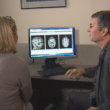Differential Diagnosis of Dementia
Differential Diagnosis of Alzheimer’s Disease: The Mimics in the Maze
The most prevalent type of dementia is Alzheimer’s disease (AD), but there are other causes of memory loss and cognitive impairment as well. Accurate diagnosis of Alzheimer’s is essential because different types have rather distinct treatment modalities. In exploring the idea of differential diagnosis, this blog article highlights illnesses that can resemble Alzheimer’s and the critical steps that must be done in order to get the right diagnosis.
Table of Contents

Cracking the Code: The Significance of Differential Diagnosis
Differential Diagnosis of Dementia
Determining the precise cause is the first step when someone displays signs suggestive of dementia, such as memory loss or difficulties with daily duties. The importance of differential diagnosis is as follows:
- Correct Therapy: Different treatment modalities are needed for various underlying diseases. Accurate diagnosis guarantees that patients get the best care possible for their particular ailment.
- Assessment and Handling: Depending on the diagnosis, there are significant differences in the disease’s progress and possible therapy approaches.
- Future Planning: Individuals and families can make well-informed decisions about future care and planning when they are aware of the particular disease.
The Accused: Situations That Replicate Alzheimer’s
Differential Diagnosis of Dementia
A thorough assessment is necessary to distinguish between the several illnesses that can present as Alzheimer’s:
- Vascular Dementia: This type of dementia, which is brought on by issues with blood flow to the brain, can cause cognitive decline and memory loss that are mistaken for Alzheimer’s.
- Abnormal protein deposits in the brain cause: Lewy Body Dementia, a disorder marked by cognitive deterioration, tremors, and hallucinations. In some circumstances, symptoms may coincide with Alzheimer’s.
- Frontotemporal dementia: This type of dementia affects the brain’s frontal and temporal lobes, leading to behavioural issues, personality changes, and language impairments that can occasionally resemble Alzheimer’s disease symptoms.
- Hydrocephalus at Normal Pressure: Dementia-like symptoms such as walking difficulties, memory loss, and incontinence can be caused by an accumulation of fluid in the brain.
- Depression: Prolonged depressive symptoms can mimic Alzheimer’s disease by causing memory loss, attention issues, and irregular sleep habits.
- Vitamin Deficiencies: Cognitive deterioration that may be misdiagnosed as Alzheimer’s disease can result from deficiencies in some vitamins, especially B12.
Revealing the Murderer: The Investigative Detective Task
Differential Diagnosis of Dementia
Differential diagnosis is a multifaceted process that involves:
- Comprehensive Medical History: Gathering details about the person’s medical background, previous diagnoses, prescribed drugs, and family history can provide important hints.
- Mental Status Exam: Memory tests, language assessments, and reasoning exercises are used to evaluate cognitive function and identify cognitive strengths and shortcomings.
- Physical and Neurological Examination: A neurological examination evaluates reflexes, balance, and coordination, while a physical examination can rule out other medical disorders producing symptoms.
- Neuroimaging Techniques: MRIs and CT scans of the brain can identify anatomical anomalies linked to certain illnesses such as normal pressure hydrocephalus or vascular dementia.
- Laboratory Tests: Blood tests can be used to check for infections that resemble dementia symptoms, thyroid issues, or vitamin deficiencies.
Differential Diagnosis of Dementia
Further specialised testing, such as lumbar punctures or PET scans, may be considered in certain circumstances to further distinguish between illnesses that appear similarly.
Getting Through the Maze: The Value of a Specialist
Differential Diagnosis of Dementia
It is strongly advised to speak with a neurologist or geriatrician who specialises in dementia evaluation due to the intricacy of differential diagnosis.
These experts possess the skills and expertise necessary to precisely determine the root cause of symptoms and provide a customised treatment strategy. In order to maximise treatment outcomes and guarantee the best care possible for people experiencing cognitive loss, early and precise diagnosis is essential.
Concluding Remarks: Attaining Manifestation
Differential Diagnosis of Dementia
Although dementia commonly manifests as Alzheimer’s disease, a number of different illnesses might resemble its symptoms. Differential diagnosis is essential for determining the actual cause of cognitive impairment. People can get the best diagnosis and treatment for their particular ailment by using a comprehensive approach and seeing a professional. Future developments may provide even more accurate diagnostic techniques for more obvious paths to successful management of different dementias as research continues.


